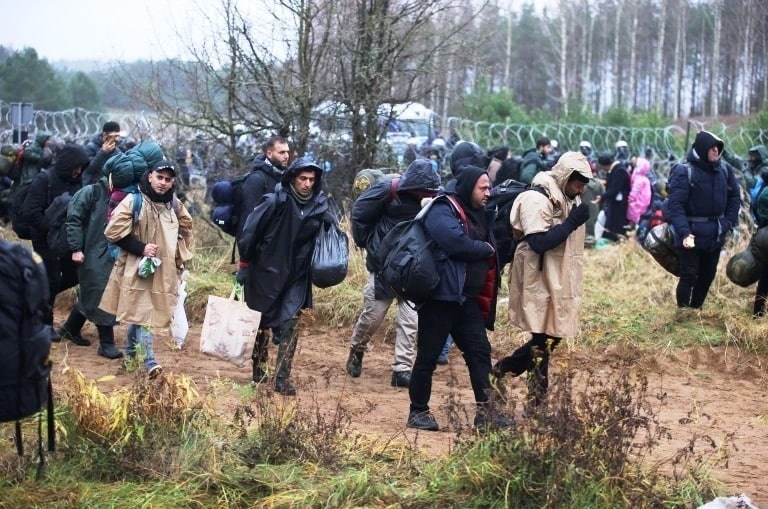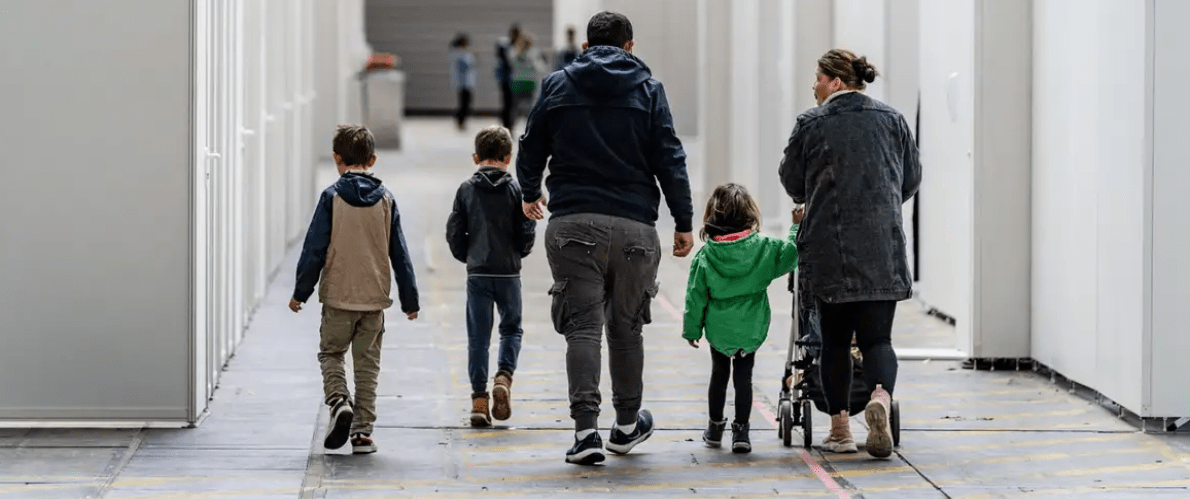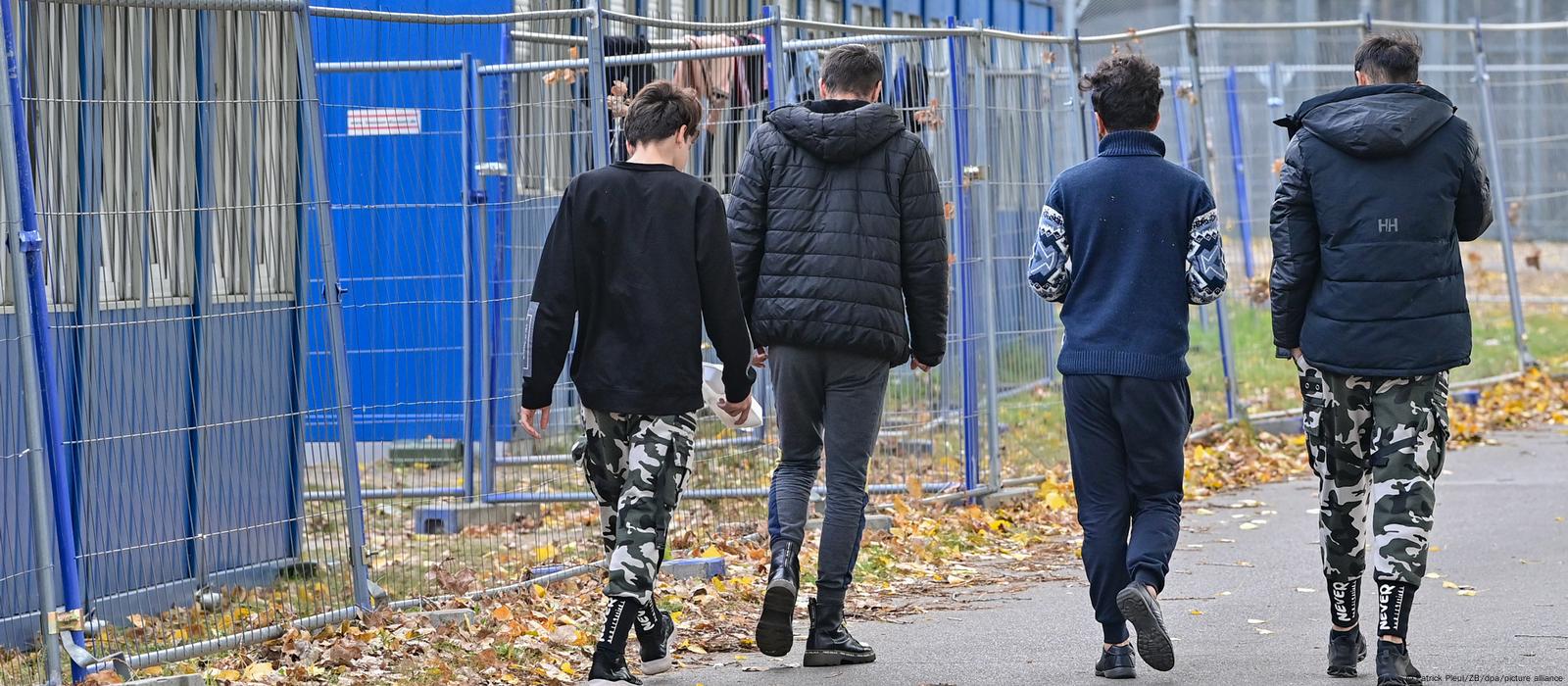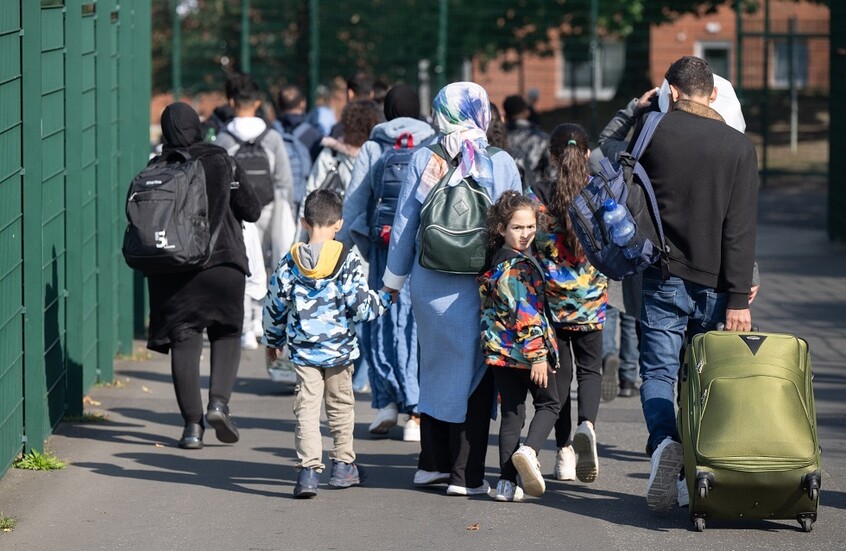Médecins Sans Frontières MSF has called on the Polish government to help provide the necessary assistance to asylum seekers detained on the border with Belarus.
The organization also announced its concern regarding the consequences of the approval of the Polish parliament of a law that allows the exemption of police officers, border guards and army soldiers from criminal liability when using coercive measures against migrants on the border with Belarus.
MSF warned of the consequences of the new law, which means militarizing the border with Belarus, as Poland imposes restricting access to asylum seekers to the buffer zone. The Buffer Zone is the area that Poland imposed in mid-June on the border with Belarus, with an area of 60 kilometers, which is the area through which migrants cross to European countries.
Poland does not allow humanitarian organizations and media outlets to access the buffer zone unless they obtain permission from the border guards.
According to MSF, the new measures will worsen the humanitarian situation of migrants at the border, in addition to the risk of border guards using lethal weapons against people seeking protection.
Polish border guards have not allowed MSF access to the entire buffer zone to provide medical assistance, but have rather only allowed MSF doctors to enter a limited area for 30 days.
Poland has refused as well requests from humanitarian organizations and volunteers from grassroots organizations to enter the buffer zone to provide humanitarian assistance to migrants.
“The ban acts as a blindfold,” said Andreas Speight, MSF’s head of humanitarian activities. “We do not know what is happening in the densely forested area between Poland and Belarus. We cannot help people we cannot see.”
Speight called for treating people seeking protection in Poland with dignity and humanity, and called on the Polish authorities to allow humanitarian organizations access to the buffer zone to provide humanitarian services.
Recent developments on the Polish-Belarusian border have raised concerns among humanitarian organizations, as the current situation threatens the lives of people on the border because they do not receive the necessary humanitarian assistance, especially medical assistance.
Since the beginning of 2024, MSF has provided medical assistance to 99 cases. It has also provided medical assistance to 142 people suffering from intestinal infections, severe fatigue, and injuries resulting from violence. It has also helped the transfer of 32 individuals to the hospital for dehydration, hypothermia, and wounds.
The organization documented the exacerbation of chronic diseases among migrants, especially for pregnant women.
A number of people reported that they were stranded in the border area, which they call the “death zone,” and people remain in the area for periods of up to 90 days in the face of a lack of food and clean water.





